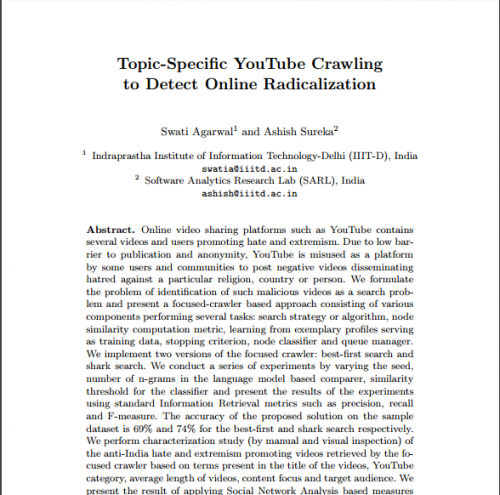Online video sharing platforms such as YouTube contains several videos and users promoting hate and extremism. Due to low barrier to publication and anonymity, YouTube is misused as a platform by some users and communities to post negative videos disseminating hatred against a particular religion, country or person. We formulate the problem of identification of such malicious videos as a search problem and present a focused-crawler based approach consisting of various components performing several tasks: search strategy or algorithm, node similarity computation metric, learning from exemplary profiles serving as training data, stopping criterion, node classifier and queue manager. We implement two versions of the focused crawler: best-first search and shark search. We conduct a series of experiments by varying the seed, number of n-grams in the language model based comparer, similarity threshold for the classifier and present the results of the experiments using standard Information Retrieval metrics such as precision, recall and F-measure. The accuracy of the proposed solution on the sample dataset is 69% and 74% for the best-first and shark search respectively. We perform characterization study (by manual and visual inspection) of the anti-India hate and extremism promoting videos retrieved by the focused crawler based on terms present in the title of the videos, YouTube category, average length of videos, content focus and target audience. We present the result of applying Social Network Analysis based measures to extract communities and identify core and influential users.
